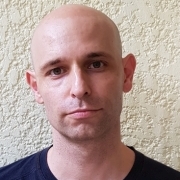The Social program

Social Psychology
Research in social psychology examines how people’s feelings, thoughts, behaviors and neural activity, are shaped by their social environment. The topics studied in social psychology include attitudes, decision making, motivation, social neuroscience, intergroup relations, group dynamics, conflict and reconciliation, and gender.
Social program faculty

Nira Liberman
We study how people go beyond the direct experienced here and now to consider the distal (future and past) time, far away locations, other people, and hypothetical (counterfactual) events. We study what enables such expansion of scope and what are the consequences of such expansion. For example, how psychological distancing and adopting an abstract mindset affects cognitive performance and working memory? How it affects ability to take long-run considerations (e.g., reputation) when making decisions?

Nurit Shnabel
Broadly speaking, I am interested in understanding the social psychological processes involved in improving social relations, whether it is between individuals or between groups. Within this broad topic, I have two major lines of research. The first line examines the processes that facilitate or hinder reconciliation, such as the conflicting parties’ tendency to engage in competition over the victim status. I study these processes within the theoretical perspective of the needs-based model of reconciliation. The second line examines the processes that facilitate or hinder gender equality. For example, I study the circumstances that lead men and women to behave in ways that reinforce traditional gender roles, such as the Madonna/whore dichotomy.

Yoav Bar Anan
The main research topic in our lab is evaluative processes: processes that pertain to feelings toward objects and judgment whether an object is positive or negative. How do people develop feelings toward objects? how do people form their judgment of objects? How do these feelings and judgment influence behavior? These questions are relevant to attitudes and actions toward the self (do I like myself?), other people (Mom, the prime minister, Rory Gilmore, Arctic Monkeys), social groups (Arabs, redheads, geeks), objects (Avocado, my phone), and more abstract concepts (Socialism, Atheism).

Yaara Yeshurun
We are interested in studying mechanisms underlying individual differences in the way individuals interpret external situations. Moreover, we are interested in testing the interaction between individuals who share (or do not share) the same views and interpretations. Specifically, we would like to better understand the role of neural and physiological synchronization in mediating differences in interpretation. We test these questions in ecological situations -- using real-life stimuli such as movies and stories, and by measuring real-life interactions. We combine different methods (behavioral, physiological, eye-tracking, fMRI and fNIRS) to study these questions on various levels.

Michael Gilead
In the broadest terms, we try to understand the psychological processes of knowledge construction; i.e., the mechanisms whereby humans understand and predict their reality. As described by Berger and Luckman (1966), "The man in the street inhabits a world that is 'real' to him, albeit in different degrees, and he 'knows', with different degrees of confidence, that this world possesses such and such characteristics." Research in our lab tries to understand how this knowledge is formed, across many different domains: We are interested in the construction of knowledge about the self (e.g., the self-concept) and the social world (e.g., ideology); one's personal past (e.g., autobiographical memory) and about the future of the world (e.g., geopolitical forecasting)—as well as in the formation of beliefs about the significance of events (e.g., emotional appraisal).
Other faculty members (outside of the social program) that supervise social psychology students
Daphna Joel
Prof. Joel studies questions related to brain, sex and gender, applying various analytical methods to analyze diverse datasets, from large collections of brain scans to information obtained with self-report questionnaires. In a series of papers, she has described and tested the ‘mosaic’ hypothesis – the claim that sex differences in the brain do not add-up consistently in individuals; rather, most brains are composed of both features more common in females and features more common in males. Other studies focused on the perception of gender identity and its relation to sexuality. Ongoing studies attempt to characterize the latent structure of gender by studying its different aspects (gender identity, gender performance, sexuality, gendered preferences and attitudes, etc) as well as assess the impact of the mosaic framework on individuals’ gender ideology and bias.
Danit Ein-Gar
In the giving lab we explore the emotional, cognitive and social processes that foster giving in contemporary lifestyle and the new-age charitable platforms (online website, social network campaigns, crowdfunding, mobile apps etc.) For example, we look at how lifestyle practices shape new forms and motivations for giving, how recommender systems that offer donors personalized appeals increase the effectiveness of donation-raising platforms, how donation-raising crowdfunding websites can design more effective campaigns that increase their conversion rate and the overall campaign success.
Yaniv Shani
My research focuses on how counterfactual emotions, anticipated or experienced, influence and bias behavioral choices. My research on information search identifies reasons that motivate people to search for useless information (e.g., why consumers compare prices of products purchased a while ago). My research about the psychological principles underpinning consumers’ economic behaviors, examines the repercussions of inserting an economic transaction mindset into a social relationship (i.e., mixing money and friendship). Finally, I seek to unravel the link between self-deception proclivities and consumers’ choices and explain how consumers justify the purchase of products they do not really need.
Elinor Amit
Dr. Elinor Amit is a senior lecturer at the Coller School of Management at Tel Aviv University. Amit received her Ph.D. in Psychology from Tel Aviv University in 2009. She then completed two postdoctoral fellowships, one at the Psychology Department at New York University and the other at the psychology Department at Harvard University.Dr. Amit’s research is concerned with how domain-general systems such as the visual and language systems affect people’s thoughts, feelings, judgments, and behavior in the social world. An additional research interest is moral decision-making.
Boaz Hameiri
My program of research consists of an examination of different psychological barriers to attitude change and conflict resolution (e.g., victimhood), and the development of psychological interventions (e.g., paradoxical thinking) to address these barriers and promote better intergroup relations and conflict resolution. In my research, I employ a mixed-method approach with various qualitative and quantitative methods (e.g., intervention tournaments), in the lab and on a large-scale in the field; working in various contexts and populations worldwide, in collaboration with a broad community of international collaborators, as well as NGOs, advertising and media experts.
Carmit Tadmor
Prof. Tadmor’s research focuses on understanding the impact of the experience of conflict on psychological and organizational outcomes in an increasingly globalized society. Most notably, she is interested in the effects of multicultural experiences on cognitive functioning and exploring their potential positive and negative implications for organizationally relevant phenomena such as creativity, professional success, and interpersonal functioning.
Shai Danziger
Prof. Danziger studies Consumer Behavior. He uses behavioral experimental methodology and field data to ask questions about consumer information processing and decision making. He and his students have worked on a variety of topics including consumer crowdfunding decisions, consumer responses to game promotions, when and why consumers may be careless with their own products, consumer understanding of causal arguments in marketing communications, consumer price perceptions, the effects of language on consumer thought, consumer online reviews, differences between what people choose for themselves and what they advise others to do, and how engaging in pro-social behavior influences monetary risk taking.

